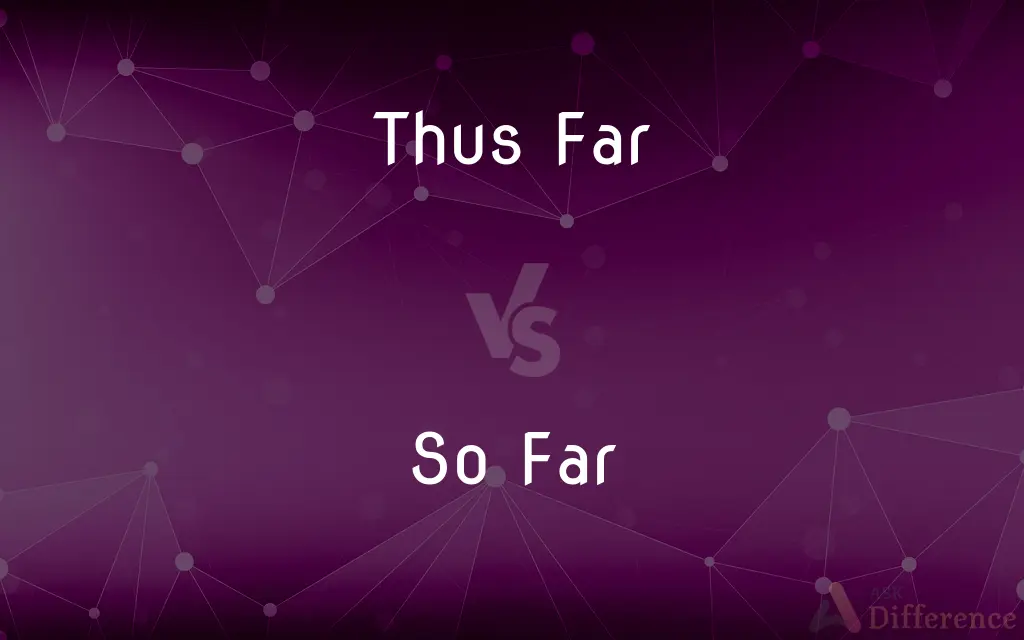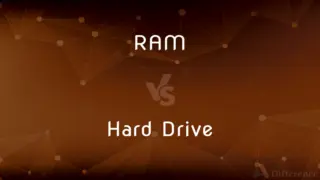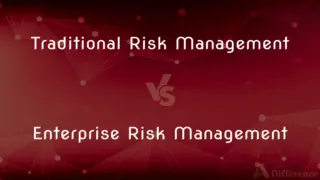Thus Far vs. So Far — What's the Difference?
By Maham Liaqat & Urooj Arif — Published on November 8, 2024
Thus far emphasizes progress or status at a specific point, while so far connotes a casual observation of progress or experience.

Difference Between Thus Far and So Far
Table of Contents
ADVERTISEMENT
Key Differences
"Thus far" is a formal expression used to denote the extent or degree of progress made up to a certain point in time or within a process. It carries a tone of reflection and is often used in formal writings, speeches, or situations where an assessment of progress is being made. "Thus far" implies a measured evaluation of progress or achievements, suggesting a deliberate consideration of what has been accomplished.
"So far," in contrast, is a more casual and commonly used phrase that refers to the progress, achievements, or experiences gained over a period up to the present moment. It is versatile, fitting into everyday conversation, informal writing, and less formal contexts. "So far" suggests a temporal progression but with a less formal assessment of what has been achieved or experienced.
While both phrases indicate a progression to a current point, "thus far" is typically used in contexts requiring a more formal tone or when the speaker wishes to emphasize the significance of the progress or status achieved. "So far" is used more broadly and can refer to anything from personal experiences to the progress of work or projects, often without the formal tone implied by "thus far."
The choice between "thus far" and "so far" depends on the context and the level of formality desired by the speaker or writer. In academic or professional settings, "thus far" might be preferred to convey a sense of seriousness or reflection. In contrast, "so far" is suitable for casual discussions or when conveying information in a more relaxed manner.
"Thus far" can serve to underscore the importance of the progress or findings being discussed, especially in research, analysis, or when summarizing the stages of a project. "So far," however, tends to relate more to preliminary observations or general assessments without the depth of analysis or formality that "thus far" might suggest.
ADVERTISEMENT
Comparison Chart
Tone
Formal, reflective.
Casual, conversational.
Context
Formal writings, speeches, evaluations.
Everyday conversations, informal writing.
Implication
Measured evaluation of progress.
General observation of progression.
Suitability
Academic, professional settings.
Broader, including personal experiences.
Connotation
Significance and deliberation of achievements.
Temporal progression without formal assessment.
Compare with Definitions
Thus Far
Indicating a formal assessment of progress.
Thus far, the data supports our initial hypothesis.
So Far
Used in everyday language to summarize experiences or achievements.
The trip has been amazing so far.
Thus Far
Reflecting on progress made with a sense of evaluation.
Thus far, our efforts have yielded significant results.
So Far
Up to the present moment, in a casual or informal manner.
So far, everything seems to be going well.
Thus Far
Used to mark the extent of achievements in a deliberate manner.
The negotiations have been successful thus far.
So Far
Referring to the ongoing status of efforts or situations.
So far, the plan is on track.
Thus Far
Up to this point, especially in a formal or serious context.
The project has met all its benchmarks thus far.
So Far
Expressing the extent of progression in a non-formal context.
I've read three books so far this month.
Thus Far
Emphasizing the continuity and success of a process.
Our team has performed admirably thus far.
So Far
Indicating a preliminary observation of progress.
So far, we've seen a positive response from the customers.
Common Curiosities
Is "thus far" only appropriate for formal documents?
Primarily, yes, "thus far" suits formal documents or contexts where a reflective tone is desired, though it's not exclusive to them.
Is there a difference in the level of detail expected when using "thus far" vs. "so far"?
"Thus far" might imply a more detailed or evaluative look at progress, while "so far" typically conveys a general update or observation.
Can "so far" be used in professional emails?
Yes, "so far" can be used in professional emails, especially when conveying updates or summaries in a less formal tone.
How do "thus far" and "so far" affect the perception of progress in a statement?
"Thus far" can make the progress seem more deliberate and evaluated, while "so far" presents it in a more casual or preliminary manner.
How do audiences react differently to "thus far" vs. "so far"?
Audiences might perceive "thus far" as more authoritative or reflective, while "so far" might be seen as more accessible and relatable.
What are the implications of choosing "thus far" over "so far" in a report?
Choosing "thus far" in a report suggests a more formal evaluation of progress, possibly lending the report a tone of seriousness and depth.
Does "thus far" imply that progress will continue?
"Thus far" suggests that progress has been made up to the present, often with an expectation of continuation, but it mainly focuses on what has been achieved until now.
Can the use of "thus far" change the tone of an academic paper?
Yes, using "thus far" in an academic paper can contribute to a more serious and scholarly tone, underscoring the rigor of the analysis or research.
Is "so far" too informal for presentations?
Not necessarily; it depends on the audience and the context. "So far" can be suitable for presentations that aim for a more conversational or engaging tone.
Can "thus far" and "so far" be used interchangeably?
While technically interchangeable in some contexts, their usage depends on the desired tone and formality of the communication.
Share Your Discovery

Previous Comparison
RAM vs. Hard Drive
Next Comparison
Traditional Risk Management vs. Enterprise Risk ManagementAuthor Spotlight
Written by
Maham LiaqatCo-written by
Urooj ArifUrooj is a skilled content writer at Ask Difference, known for her exceptional ability to simplify complex topics into engaging and informative content. With a passion for research and a flair for clear, concise writing, she consistently delivers articles that resonate with our diverse audience.












































